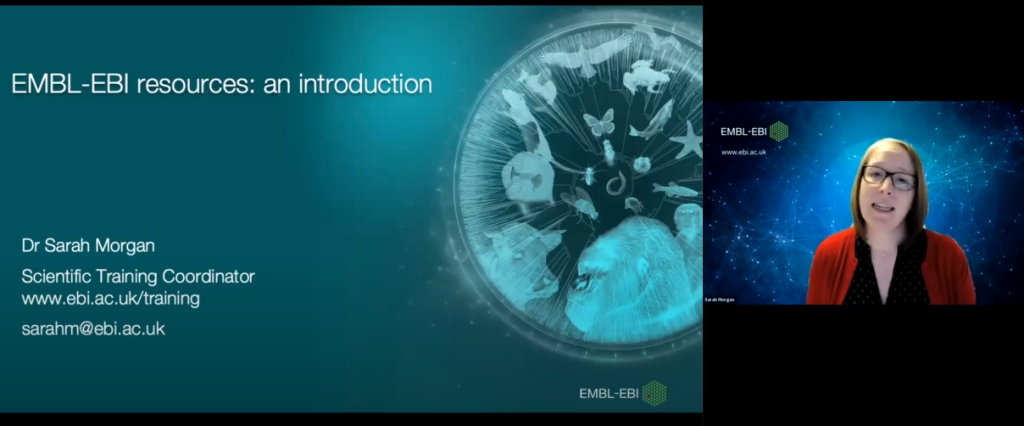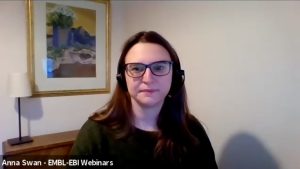Join EMBL-EBI training at our Wednesday Webinars!
If you’re looking for bite-sized learning opportunities delivered by EMBL-EBI experts, then our regular series of webinars might be just what you are looking for!
EMBL-EBI’s Training team has been running a series of webinars since 2013, featuring speakers from across EMBL and beyond. Over the years we have covered a wide range of subjects, but its roots are in the resources and databases made available by EMBL-EBI, as well as related biological topics. So far in 2021, we’ve heard from members of Ensembl, RNAcentral, EuropePMC, UniProt and the European Genome-Phenome Archive, with many more to come.
The webinars were started as a way to enable a much wider audience to access our training and interact with our experts. They provide attendees with an introduction to a topic and resource, along with the all important opportunity to ask questions directly to our trainers. If you want to know more about how to use a resource, or perhaps how to analyse or submit data, these are the people with the answers!
Exploring our upcoming webinar listings provides an overview of subjects to be covered. For the majority of webinars the only thing required is an interest in the topic, though some may be aimed at a more specific audience.

The series is currently organised by my colleague Ajay Mishra and I. One of us is on hand at every webinar, introducing the speakers and making sure everything runs smoothly. As well as ensuring questions are answered, we also provide an opportunity for all attendees to give feedback, so if you join us, please let us know what you think. You can also tell us if there’s a topic you are keen to see covered in the future.


Over the years we have run a number of focused webinar series, including programmatic access of EMBL-EBI resources and data management. From April this year, we will be running a new focused series, “A guide to…”, where we will introduce some concepts in bioinformatics and how they link to some of the EMBL-EBI resources. This series is aimed particularly at students and early-career researchers, but anyone with an interest will be welcome. We will be kicking off the series with topics such as “A guide to exploring genes and genomes with Ensembl” and “A guide to RNA families”. The first webinars in the series are available for registration now, but keep an eye out for future topics in this series, including drug discovery and pathway analysis.
If you are ever unsure about joining a webinar, you can always contact the team at webinars@ebi.ac.uk and we’ll happily answer any questions you may have. We’re also always thinking about what to include next in the programme, so let us know if there’s something you would like to see.
Finally, if there is a webinar that has taken place in the past or there’s one you cannot attend, it is not a problem! We record them all and make them available, along with the slides, in the on-demand section of our website. We always include details on how to get in touch with the trainers and their teams so you can ask the experts a question anytime. We also encourage other trainers to use our recordings and materials in their own training – check out these details on re-use of our content for further information.
We look forward to seeing you at a webinar in the future.
Written by Anna Swan.

Anna joined the Training Team at EMBL-EBI in March 2019 as a Scientific Training Officer (e-learning). She has a PhD in Bioinformatics from the University of Nottingham, where she focused on the bioinformatic identification of biomarkers of osteoarthritis. Following her PhD, Anna worked as a medical writer, spanning many therapeutic areas and working both on promotional and educational content for clinicians. Returning to bioinformatics, Anna worked as a data wrangler for the International Mouse Phenotyping Consortium at the project’s data coordination centre based in the Medical Research Council’s Harwell Institute.